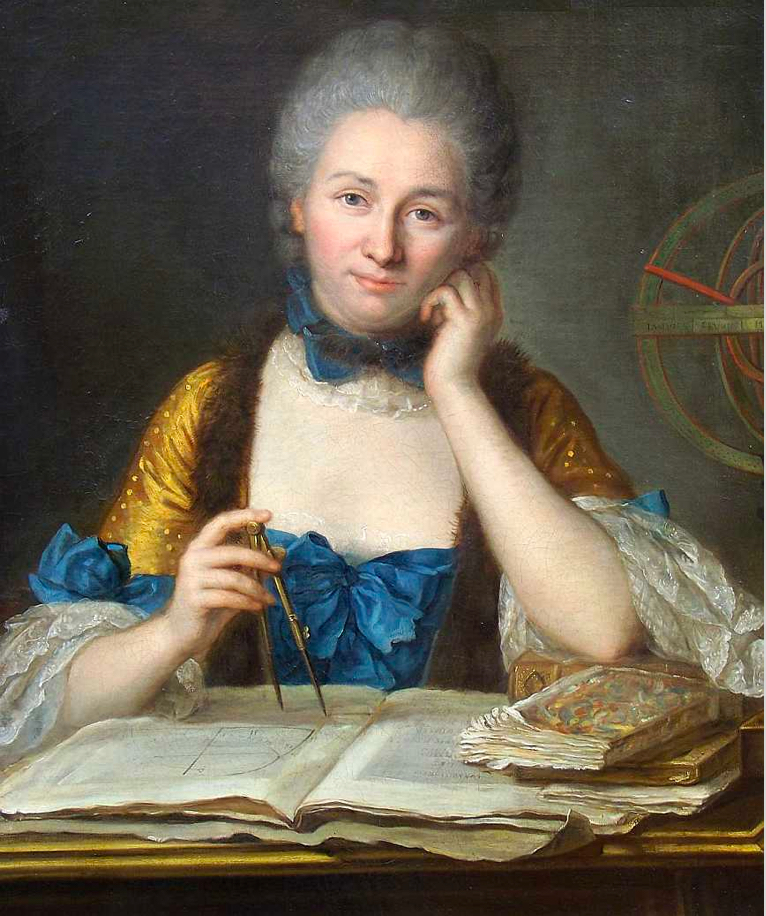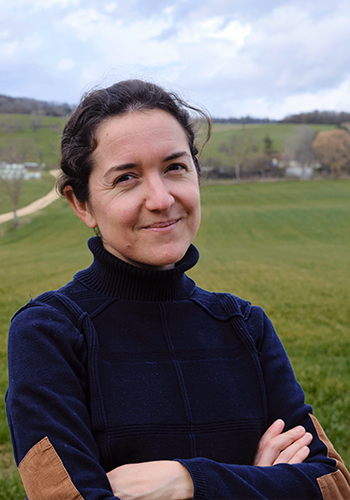Pourquoi la tech ?
Quand j’ai choisi le métier d’ingénieur, ce qui m’a attirée vers la tech était ma volonté de contribuer à la résolution de défis environnementaux de notre société, avec la proposition de solutions innovantes et pratiques. Dans ce métier, le développement technologique est la fin ultime de nos avancées scientifiques.
Votre parcours ?
J’ai reçu les titres d’ingénieur (2012) et de docteur (2016) en énergétique au Politecnico di Milano, en Italie. Pendant le doctorat, je me suis consacrée principalement à l’amélioration de la modélisation des propriétés thermodynamiques des fluides utilisées dans des procédés de captage et de stockage du CO2, avec un regard attentif à l’impact que la précision de ces propriétés avait sur le dimensionnement des procédés. Ce travail a été effectué en partie au Politecnico di Milano, au laboratoire LEAP (à Piacenza, Italie) et au laboratoire LRGP à Nancy (Université de Lorraine). Lors de mon doctorat, j’ai également investigué, à l’Université de Brescia (Italie), la stabilité thermique de fluides de travail utilisés dans des centrales pour la conversion de la chaleur fatale en électricité. De 2016 à 2018, j’ai effectué deux années de postdoc au LRGP, en travaillant sur deux problématiques propres à Air Liquide : la liquéfaction de l’hydrogène et la séparation des constituants de l’air. En 2018, j’ai été nommée maîtresse de conférences à l’Université de Lorraine. Actuellement, je consacre mes recherches au développement de solutions innovantes pour la production efficace d’électricité et de chaleur, ainsi qu’à la récupération de la chaleur fatale industrielle.
Votre première expérience professionnelle dans la tech ?
J’ai rédigé ma thèse de Master au département Combustion&Casings de Rolls-Royce plc, en Angleterre, en travaillant à la compréhension des instabilités de combustion dans leurs moteurs aéronautiques. J’ai développé une chambre de combustion expérimentale (qui a pris feu au premier essai – mais pas de ma faute !) et j’ai analysé les résultats d’un test sur les instabilités de combustion, le « siren rig », qui à son temps était le plus important au monde. Une première expérience donc très passionnante !
Que faites-vous aujourd’hui et pourquoi ?
En tant qu’enseignante-chercheuse aujourd’hui, j’enseigne principalement dans des cours d’énergétique, et je mène des recherches technico-scientifiques visant le développement d’une nouvelle génération de centrales électriques et de pompes à chaleur, utilisant comme fluide de travail un fluide réactif, et non plus un fluide inerte comme aujourd’hui. Avec mon équipe, nous développons ces fluides, en caractérisons les propriétés énergétiques, développons l’architecture de la machine qui pourrait les utiliser de la façon la plus efficace, et construisons des pilotes pour pouvoir valider nos calculs et donc quantifier le gain des nouvelles technologies qui en résulteraient. Et bien sûr, cela en contact direct avec plusieurs industriels, qui nous aident au développement industriel et à la quantification de la « rupture technologique » à laquelle nous travaillons.
Vos atouts pour ce poste ?
Une bonne imagination (j’ai beaucoup d’idées ! – pas toujours réussies) ; une grande curiosité et une impatience d’arriver à une conclusion concrète, ce qui me propulse à chercher rapidement des résultats ; le besoin de voir pour croire, ce qui m’incite à passer du projet sur papier à la réalisation pratique ; et une forte persévérance.
Vos défis passés, vos ratés, vos grands moments de solitude ?
J’étais très timide jusqu’à la fin de mes études ; faire ressortir mon caractère a été mon premier défi. D’ailleurs, une activité qui m’a aidée à trouver de la confiance en moi-même a été l’alpinisme, qui m’a obligée à faire preuve d’un grand courage (la pire aventure : l’ascension du Mont Disgrazia après le changement climatique – que de la roche !). Moins bucolique, au cours de ma thèse, j’ai été confrontée à de nombreux défis, comme l’installation et l’utilisation d’un appareil expérimental complexe, le couplage d’activités expérimentales avec une modélisation théorique approfondie, jusqu’à l’application de ces modèles à des procédés industriels. Mais les défis nourrissent la passion pour mon travail, tant en recherche qu’en enseignement : sans défis, il y aurait moins de motivation !
Mon « raté » était la tentative de devenir chercheuse CNRS : c’était mon rêve, mais je n’ai pas été retenue.
Mon plus grand moment de solitude : lorsque j’ai dû prendre la décision de rester en France de façon définitive et de quitter mon pays, l’Italie. Au moment de cette prise de décision, je me sentais très seule et cela était difficile à supporter.
Vos meilleurs moments, les succès dont vous êtes fière ?
Le meilleur moment dans ma carrière : la réponse positive du European Research Council, qui allait financer mon projet de recherche REACHER. Mon meilleur moment dans l’absolu est le jour où ma fille est née.
Des personnes qui vous ont aidée/marquée ou au contraire rendu la vie difficile ?
Une personne qui m’a particulièrement marquée : mon enseignante de maths au lycée (prof. G. Priori). Elle m’a appris à chercher les erreurs dans les livres et à revérifier de façon méthodique mes conclusions ainsi que celles des autres. Il y a eu des personnes qui ont compliqué mon parcours, mais ces difficultés m’ont permis de m’améliorer.
Vos envies et défis à venir ?
J’espère pouvoir démontrer que nos recherches actuelles mèneront à une avancée technologique de rupture.
Et que faites-vous en dehors de votre travail ?
J’ai une famille splendide qui comble mes journées de bonheur. Je jardine beaucoup : j’adore les fleurs et les plantes ! Je fais du sport et je continue à travailler encore.
Vos héroïnes (héros) de fiction, ou dans l’histoire ?
Rita Levi Montalcini, qui a reçu le prix Nobel de médecine pour sa découverte des facteurs de croissance des fibres nerveuses pendant la Seconde Guerre Mondiale, et cela malgré l’interdiction de sa carrière universitaire en Italie par les lois anti-juives introduites par Mussolini. Elle représente l’exemple du dévouement au travail et à notre société (et pour cela, elle fut nommée Sénatrice à vie).
Votre devise favorite ?
« La seule façon de réaliser vos rêves est de vous réveiller. » R. Benigni.
Un livre à emporter sur une île déserte ?
Même si j’aime la nature, je préfèrerais rentrer chez moi, donc : un guide pour construire et conduire un radeau !
Un message ou un conseil aux jeunes femmes ?
Le monde de la technique a également besoin de notre sensibilité et de notre précision. Allez-y !


